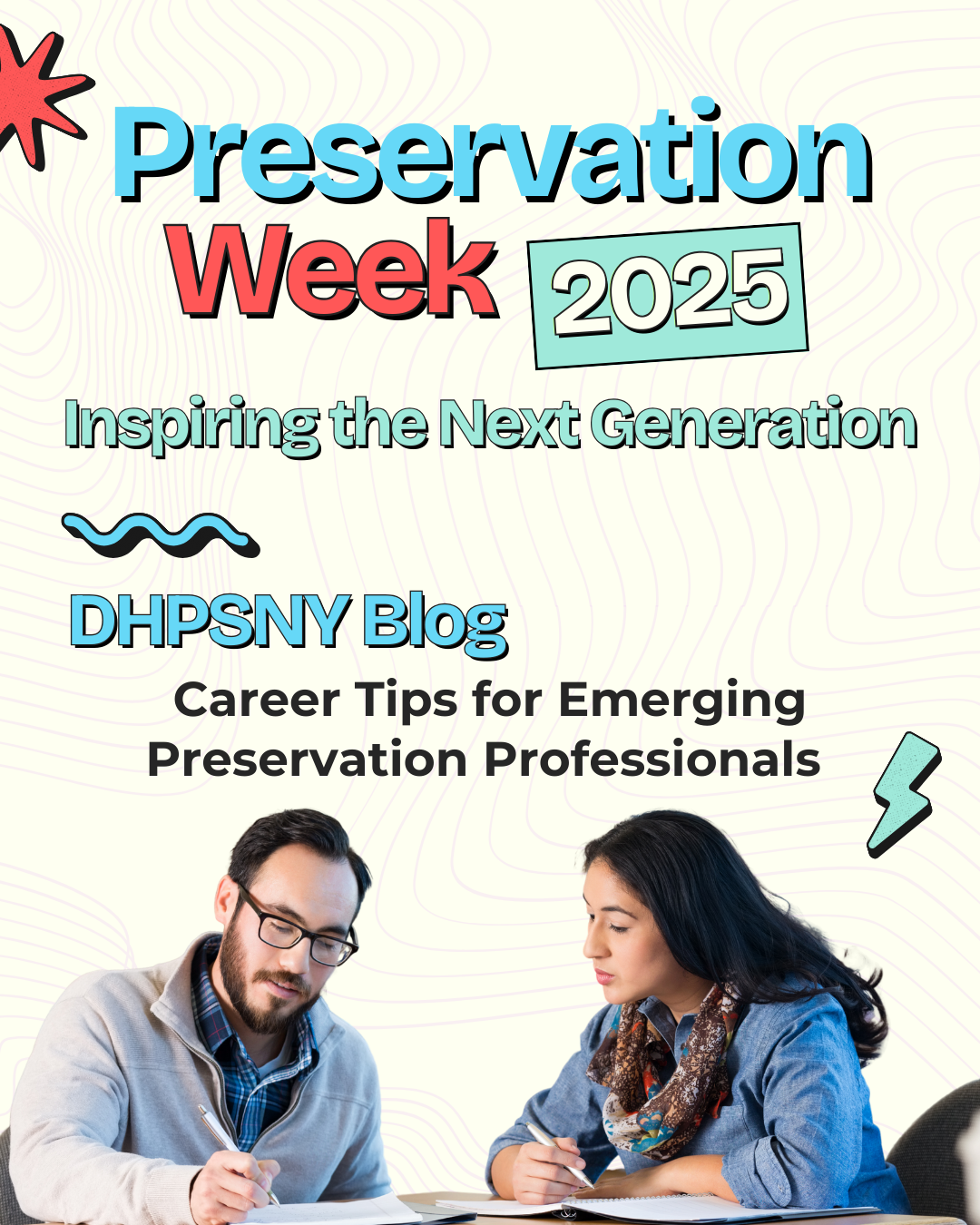
Preservation Week, sponsored by the American Library Association and celebrated during the last week of April, is an annual recognition of the importance of preserving our cultural heritage. This year’s theme, Preserve the Past, Shape the Future: Inspiring the Next Generation of Preservation Professionals, is a call to action for emerging professionals to carry the torch of preservation forward. Whether you’re in school or have recently graduated, charting your career path can feel daunting. Here are five essential career tips to help you navigate the preservation field and make a lasting impact.
1. Build a Strong Foundation with Hands-On Experience
Classroom knowledge is invaluable, but practical experience is key to building a career in preservation. Seek out internships, volunteer opportunities, and part-time jobs at libraries, archives, museums, or cultural heritage institutions. Not only do these experiences bolster your resume, but they also give you a firsthand look at preservation challenges and solutions in real-world settings.
Don’t shy away from hands-on tasks like rehousing fragile materials, conducting environmental monitoring, or assisting with digitization projects. Even if the work seems mundane, it’s a vital part of preservation efforts and demonstrates your willingness to learn. Networking with professionals during these opportunities can also open doors for mentorship and future job prospects.
2. Stay Current with Preservation Technologies and Standards
The field of preservation is constantly evolving as new technologies and methods are developed. Stay current by following professional organizations like the American Institute for Conservation (AIC), the Society of American Archivists (SAA), or the American Association of State and Local History (AASLH). Attend workshops, webinars, and conferences to learn about emerging practices, digital preservation strategies, and conservation innovations. DHPSNY, the Conservation Center for Art & Historic Artifacts, and Connecting to Collections Care offer free webinars and other online resources.
Certification programs and continuing education can also enhance your expertise. Many organizations offer courses on collections management, disaster planning, and other preservation topics. Stay curious and committed to ongoing learning, as being adaptable will help you thrive in a rapidly changing field.
3. Cultivate Cross-Disciplinary Skills
Preservation work often intersects with fields like information science, conservation, museum studies, and even environmental science. Building cross-disciplinary skills can make you a more versatile candidate and help you address diverse preservation challenges. Consider taking courses in project management, data analysis, or digital asset management to expand your skill set.
Developing technical skills, such as rehousing collections or reading environmental dataloggers, can also set you apart. Collaboration and communication skills are equally crucial since preservation projects often involve working with colleagues from different backgrounds and departments.
4. Advocate for Preservation through Public Engagement
Preservation professionals are often advocates as well as practitioners. Building public awareness and community support for preservation initiatives is crucial for long-term success. Develop skills in storytelling and public speaking to communicate the value of preservation to diverse audiences, from community members to institutional stakeholders.
Social media and digital storytelling can be powerful tools for raising awareness. Share success stories, project updates, and educational content to highlight preservation’s impact on safeguarding cultural heritage. Engaging the public fosters community investment and can help secure funding for critical projects.
5. Embrace Adaptability and Resilience
Preservation work can be unpredictable—whether it’s dealing with a natural disaster, adapting to budget cuts, or responding to technological changes. Cultivating adaptability and resilience will help you face these challenges with confidence. Develop problem-solving skills and practice creative thinking to navigate unexpected situations.
Take pride in your role as a steward of history but also remain open to change. Whether it’s adopting new conservation techniques or pivoting a project plan, your flexibility will be a key asset throughout your career.
Moving Forward with Purpose
As you embark on or continue your journey in preservation, remember that your passion and dedication to protecting cultural heritage are vital to shaping the future. By building practical skills, staying current with new technologies, and advocating for preservation, you’ll be well-equipped to make a meaningful impact. The next generation of preservation professionals holds the power to honor the past while shaping a more resilient and inclusive future.
Documentary Heritage and Preservation Services for New York (DHPSNY) is a program of the New York State Archives and New York State Library to provide service and support for the state’s archival and library research collections.